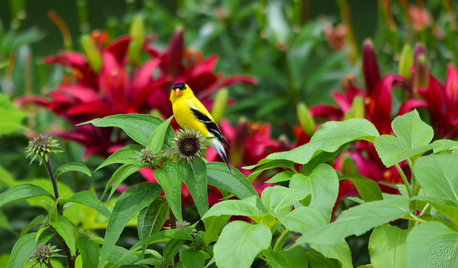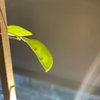Do you know of a species that is different from its parents?
sarahsflowers
15 years ago
Related Stories

LIFEYou Said It: ‘It’s Different ... But Then, Aren’t You?’ and More Wisdom
Highlights from the week include celebrating individuality and cutting ourselves some decorating slack
Full Story
LIFETell Us: Do You Know How to Live With Your Parents?
If you've tried multigenerational living under one roof, we'd love to hear the details
Full Story
HEALTHY HOMEWhat You Need to Know About Dust and How to Fight It
Breathe easier with these 10 tips for busting mites, dander and other microscopic undesirables
Full Story
COFFEE WITH AN ARCHITECTClassification of the Design Species
A scientific analysis of the diverse variety of species found in the world of design
Full Story
ANTIQUESMust-Know Furniture: The Hoosier Cabinet
This freestanding cabinet handled all the kitchen bustle in the early 20th century, earning it the motto ‘Hoosier saves steps’
Full Story
REMODELING GUIDES6 Must-Know Lessons From a Serial Renovator
Get your remodel right the first time, with this insight from an architect who's been there too many times to count
Full Story
FUN HOUZZEverything I Need to Know About Decorating I Learned from Downton Abbey
Mind your manors with these 10 decorating tips from the PBS series, returning on January 5
Full Story
GARDENING GUIDES13 North American Backyard Birds to Know
Find out about these enchanting native species and learn how to attract them to your yard
Full Story
REMODELING GUIDES8 Lessons on Renovating a House from Someone Who's Living It
So you think DIY remodeling is going to be fun? Here is one homeowner's list of what you may be getting yourself into
Full Story
VINTAGE STYLEGet Away From It All in a Glamper
A glammed-up camper can transport you to a happy place, whether in your yard or on the highway
Full Story






brandon7 TN_zone7
petzold6596
Related Professionals
Graham Landscape Architects & Landscape Designers · Avocado Heights Landscape Contractors · Fridley Landscape Contractors · Hampton Bays Landscape Contractors · Nanuet Landscape Contractors · South Lyon Landscape Contractors · Markham Landscape Contractors · Winter Gardens Landscape Contractors · Annapolis Fence Contractors · Castro Valley Fence Contractors · Goodyear Fence Contractors · Los Angeles Fence Contractors · Olney Fence Contractors · Paramount Fence Contractors · Rome Fence Contractorspineresin
eibren
ronalawn82
brandon7 TN_zone7
cody_mi
brandon7 TN_zone7
mistercross
brandon7 TN_zone7